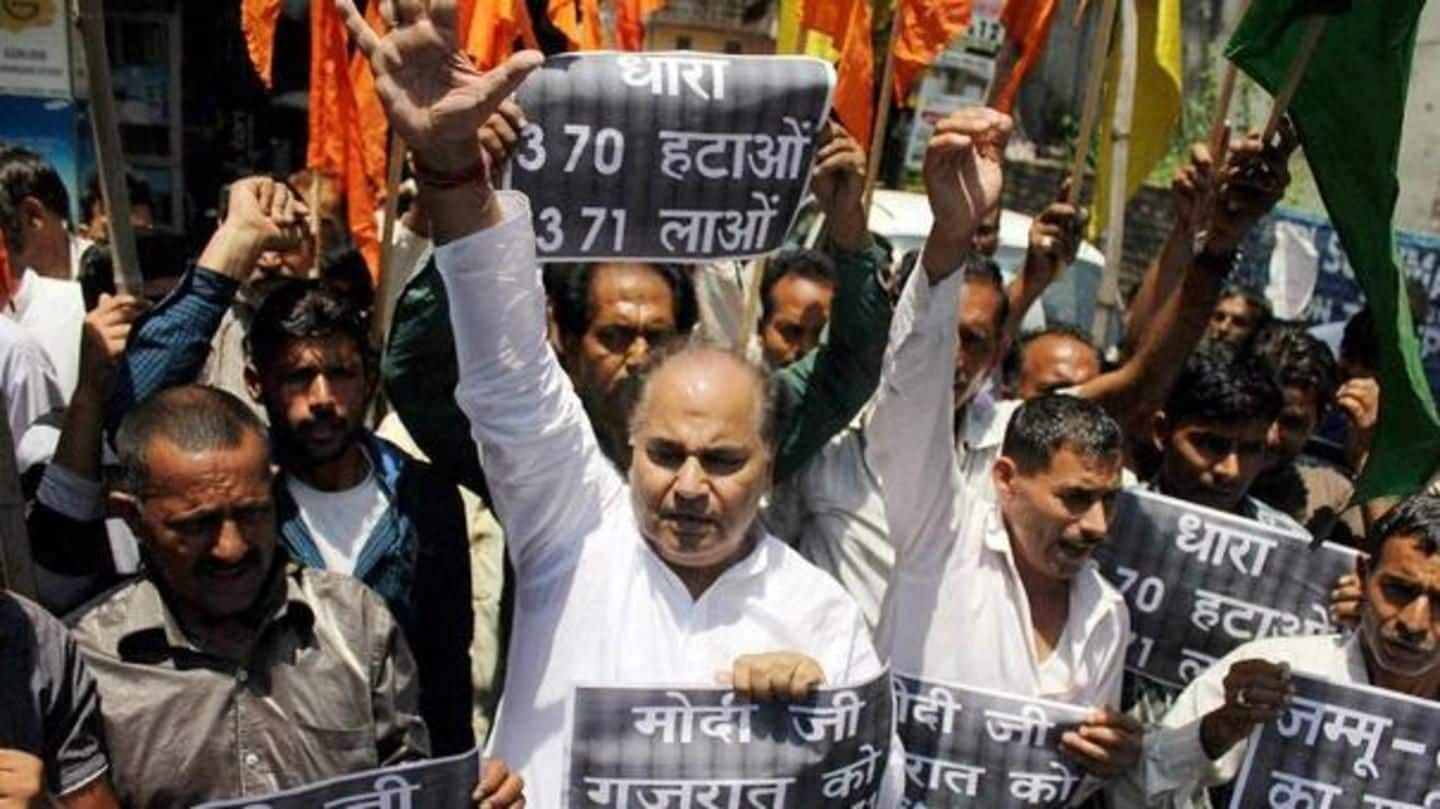
Article 370 has become permanent, cannot be abrogated: SC
What's the story
Article 370 has acquired permanent status due to its years of existence, and hence its abrogation is impossible, the SC has said.
The petitioner had argued Article 370 had lapsed with the dissolution of J&K's Constituent Assembly in 1957.
But this very fact meant the current president cannot get the Assembly's approval for its abrogation, a condition mandatory for the process, the SC noted.
1947
What exactly is the Article 370?
Article 370 of the Indian Constitution extends a provision by which J&K enjoys special autonomous status.
J&K residents live under a separate set of laws, such as those relating to "citizenship, ownership of property, and fundamental rights," than the rest of India.
Because of Article 370, Centre cannot declare the state of financial emergency in the state.
BJP
Right-wing groups demand removal of Article 370
BJP and most right-wing groups have demanded the removal of Article 370. The party has blamed the act for creating a "separatist psyche," alienating the Valley from the mainstream, and thus preventing a resolution to the Kashmir issue.
They contend that J&K is lagging behind in industrial growth because outside companies cannot set up operations in the state.
Article 370 threatens national integrity, they say.
Local
Regional parties want Article 370 to stay
However, PDP, BJP's regional ally, said J&K's special status in the Constitution should be maintained.
Former CM Mufti Mohammad Sayeed had pointed out the people of J&K had not accepted Mohammad Ali Jinnah's two-nation theory and had sided with the "big country" India in 1947.
Incumbent CM Mehbooba Mufti has also said the nation's commitment to the people of J&K and should be honored.
Judiciary
After HC upholds Article 370, petition in SC challenges 35(A)
In July'15, the J&K HC safeguarded the special status of J&K under Article 370, saying the "sovereign character" of the state cannot be challenged or abridged.
It reiterated that only laws of "defence, communication and foreign policy" can be extended to J&K by the Indian Parliament.
The same year, a petition was filed in the SC which challenged Article 35A of the Constitution.
Definition
And what is Article 35(A)?
Article 35A grants special status to J&K's permanent residents. It is this, and not Article 370, that prevents Indian citizens who are not J&K citizens from acquiring "immovable property and exercising voting rights in Jammu and Kashmir."
Status
SC refers to 2017 judgement, Center to respond in three-weeks
Responding to a petitioner's demand that the J&K Constitution be declared void, the SC referred to its 2017 judgement ruling Article 370 had acquired permanent space in the Constitution.
The Center argued a similar petition was lying before another bench, but J&K said it was related to Article 35(C).
The Center has said it will respond in three weeks after studying the 2017 judgement.